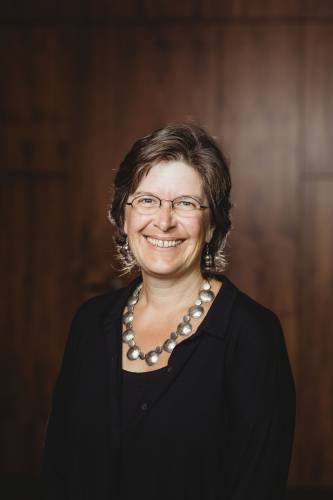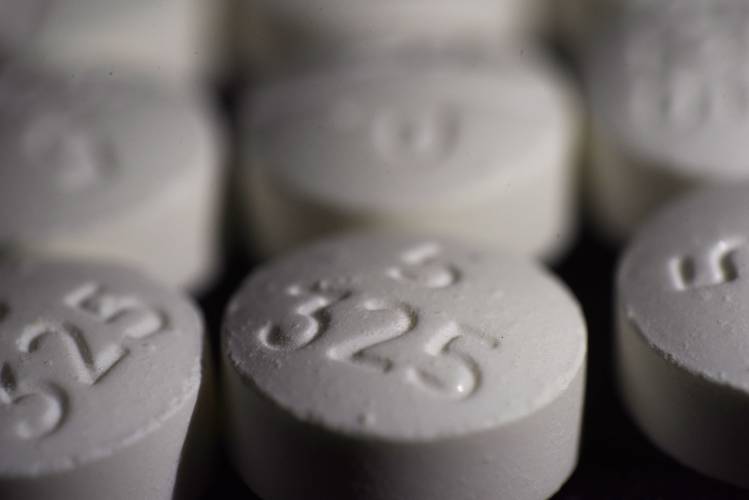Zoom session to garner public input on opioid settlement uses
|
Published: 01-30-2024 5:00 PM
Modified: 01-30-2024 6:21 PM |
As money from the nationwide opioid settlement continues to be disbursed to Franklin County towns, the Franklin Regional Council of Governments (FRCOG), in partnership with local boards of health, is inviting residents to share their input on how this funding should be spent to support public health.
On Monday, Feb. 5, at 6:30 p.m., FRCOG and local boards of health from around the county will hold a listening session via Zoom to provide residents with a chance to share their ideas on how settlement funds should be spent in the region. Registration is required — anonymous registrations are allowed, but an email is needed — and can be done at bit.ly/3RUaIcE.
“What we’re hoping for is people impacted by the opioid crisis in one way or another … can come and share what they think priorities should be for reducing the harm of the opioid crisis in our community,” said FRCOG’s Director of Community Health Phoebe Walker.
The nationwide opioid settlement agreement, first announced in July 2021 and expanded in subsequent years, set Massachusetts up to receive hundreds of millions of dollars from opioid manufacturers and pharmacies following investigations and litigation over their roles in fueling the opioid epidemic, according to the Massachusetts Attorney General’s Office.
To begin receiving payments, municipalities were required to sign and return a participation form. As a participating municipality, Greenfield will receive $1.7 million over the span of about 15 to 18 years, in multiple payments each year. As of September 2023, the city has received approximately $234,000, according to the AG’s office.
Other communities receiving significant amounts of funding include $521,000 for Orange, $330,500 for Deerfield, $194,562 for Erving, $149,380 for Sunderland, $134,000 for Conway and $91,822 for Rowe. In total, the county will receive approximately $3.77 million.
The funding model distributes settlement dollars to counties using federal data on the prevalence of opioid-use disorder in a county from 2007 to 2016, Centers for Disease Control and Prevention data on overdose deaths in the same period, and Drug Enforcement Agency data on opioid shipments from 2006 to 2014. U.S. census data, with some boundaries decided by ZIP code, showing how municipalities have split funding for government functions related to opioid abatement is also used, according to the AG’s office.
Uses of the settlement money are limited to a specific set of parameters laid out by the national agreement. Municipalities are able to use the funding to support people with opioid-use disorder or those in recovery; support community- or school-based services; implement harm-reduction methods, such as providing naloxone; and address the needs of people with opioid use disorder in the criminal justice system.
Article continues after...
Yesterday's Most Read Articles
With amounts of money being distributed to individual towns ranging from just a couple hundred to more than a million dollars, Walker said the goal is to bring people into direct contact with local health officials to share feedback and ideas on how this funding should be spent.
The state, Walker added, is encouraging partnerships among public health collaboratives, such as the Valley Health Regional Collaborative comprised of Greenfield, Deerfield, Montague, Sunderland, Leverett and Shutesbury.
Additional information on the opioid settlement, as well as a full list of which Franklin County communities are receiving money, is available on FRCOG’s website at frcog.org/opioid-settlement-updates.
“We would really welcome people coming,” Walker said. “The local boards of health are really interested in hearing from people who know this problem most intimately.”
Chris Larabee can be reached at clarabee@recorder.com or
413-930-4081.



 UMass student group declares no confidence in chancellor
UMass student group declares no confidence in chancellor State Senate budget funds free community college for all
State Senate budget funds free community college for all Longtime public servant Richard Sheridan dies at 78
Longtime public servant Richard Sheridan dies at 78 Cryptozoology exhibits featured at Education Earth Museum
Cryptozoology exhibits featured at Education Earth Museum